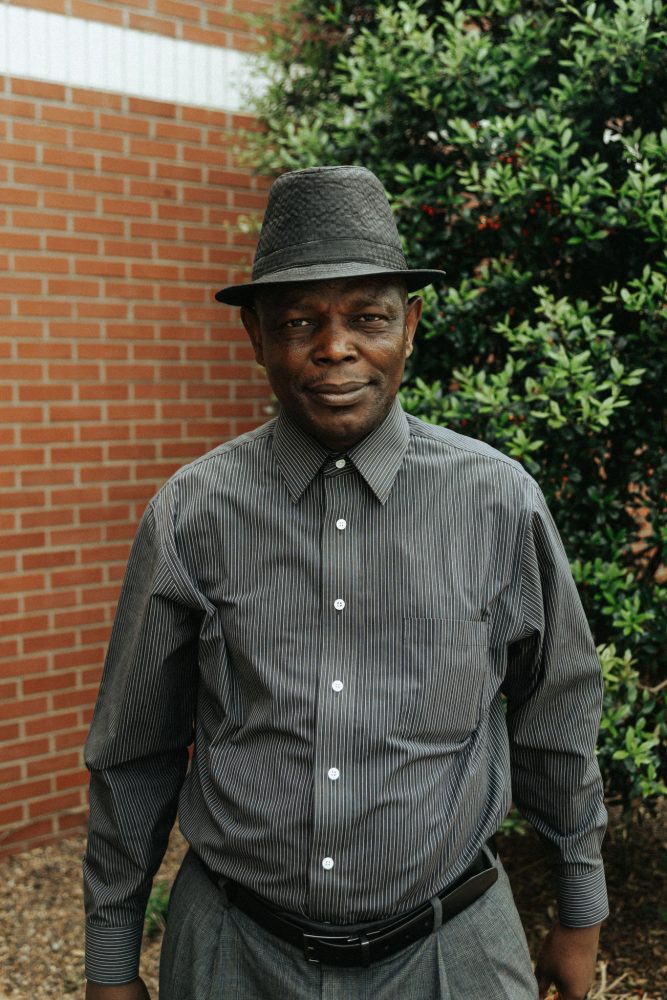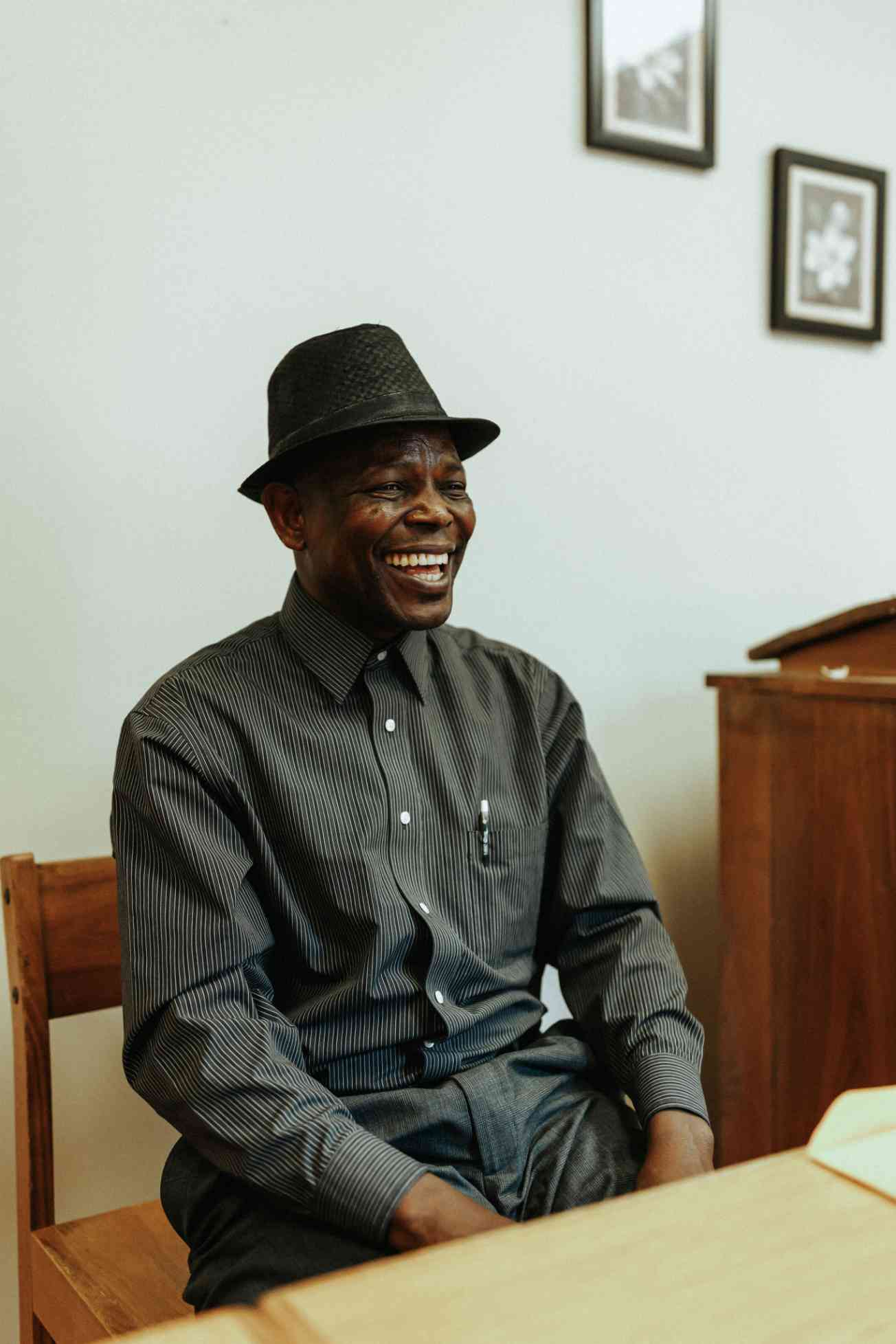Building Community While Running From War

My name is Akili Issa. I am a refugee from the Democratic Republic of the Congo (DRC). I tried to go back to the DRC three times, but today I am in America because of the war in my country.
Since I was born I had to run from the war.
The first time my family left the DRC for Tanzania was in 1975. I was maybe six years old. I went back to the DRC because I wanted to work and get married.
I studied agriculture there. But, I didn’t have the opportunity to go far in school, not university or college, because I didn’t have support at that time.
In 1996 I had to go back to Tanzania. I was there for two years but went back to the DRC because I was in love. But I had to run again, back to Tanzania.
The DRC was dangerous, but in Tanzania I faced many difficulties in life too.
I loved that in the DRC I was free. I could go everywhere, make money, and do the things I wanted. I was free.
In Tanzania I had nothing to do. I was just waiting for people to make stuff. We were not allowed to leave the camp and I was married at this point with children.
So I brought some people together to form a development group. It was a union of farmers.
We made plans to plant food. We wanted our community to have fresh food and fresh fruit.
Other organizations such as the World Health Organization and IRC helped with funding for plants and supplies. I worked with this organization for ten years.
And then we came to America in 2015. First we were in Tucson, AZ. The weather conditions were not good for my family - they are no good with heat - and not good for growing things.
I had some friends who were living in Chicago, so I went there to see the environment. I didn’t like it. I tried Indiana. I liked Indiana.
Then I came here. I did a survey with the refugees already living here to find out what it was like, if they were able to adapt to life here, if it was safe. I liked the community and the weather and said, okay we have to live here. Now I live here with my wife, and our six kids. Five boys and one girl. This girl and the oldest boy are married with their own kids but they live close by. The youngest is about 4 or 5.
The challenge that I face here is about the children. Here they only care about the age, not the level in school. It’s a big challenge. Say a 16 year-old arrives, they put the child in maybe 10th grade. That child doesn’t know English. After a couple years they will graduate but they won’t know anything. Once you have a good bridge, you can jump to another, but we need to build these kids a good bridge.

I formed a group. An education group. It’s a parent’s group so that we can support the education of our kids.
We try to work with the school, but the challenge is transportation. The school will have meetings and we have no way to get to them.
We want our children to learn. To have a good education. Once the children have a good education they will do many things, big stuff. They might even go back to our home country and work there.
And once the children are in school they create friendships with American kids. Once they are a friends, one day, maybe the American children will say hey I want you to go with you to your own land to visit your country. And while they’re visiting the country, they will see how beautiful it is. They might think it’s a good place to invest. We can do many things together.
From this organization, I hope we can build a big relationship between us without regarding government.
My dream is first, to have support because I want to make a better community in Bowling Green. We have good neighborhoods.
We have good relationships with friends and other communities that are living in Bowling Green. And if we can have support and do meetings with the community we can change the world.
Then my community can maybe start living the new life, the American life.
There is no development without sharing.
Maybe we can have some people who can show them things like: when you need this kind of resource you can meet these people you can go here you can go here and you will make money. Or, no, don’t do it this way - this way is bad for you. That will happen if they have meetings with many people.
Right now, our biggest need is transportation. Even if we have these meetings we will need transportation. People may want to come to the meeting or the session, but many will not come because there is no way to get there.
But, I remember when we have God it’s a good thing because we will love each other. And love doesn’t say, I am black I can not love white people, or I am white, I cannot love black people. No - God is one and so is one for everybody.
Our team members obtain informed consent from each individual before an interview takes place. Individuals dictate where their stories may be shared and what personal information they wish to keep private. In situations where the individual is at risk and/or wishes to remain anonymous, alias names are used and other identifying information is removed from interviews immediately after they are received by TSOS. We have also committed not to use refugee images or stories for fundraising purposes without explicit permission. Our top priority is to protect and honor the wishes of our interview subjects.